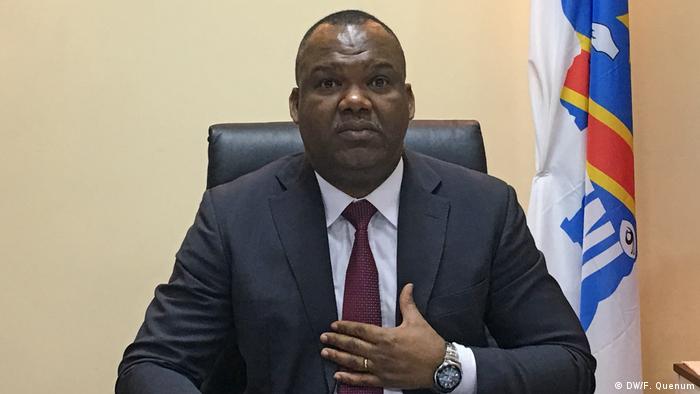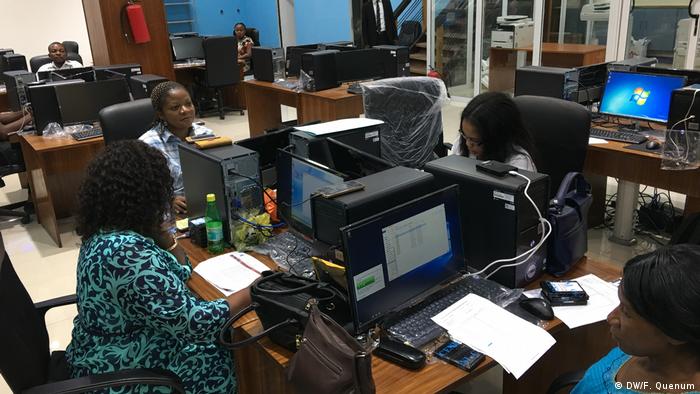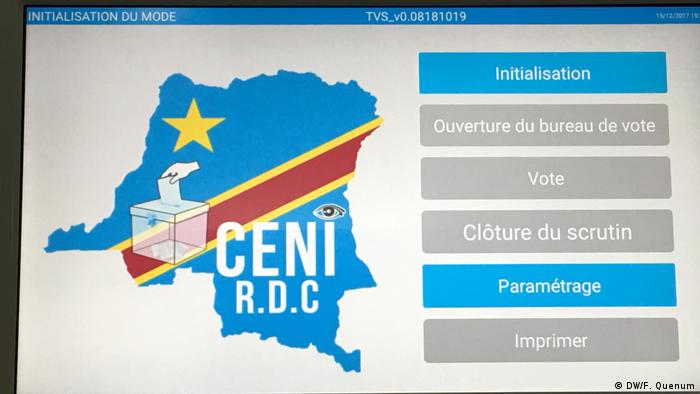In three months, is to be elected in the DR Congo, a new President. Speculation about a shift and a lack of Central election Commission chief Corneille Nangaa in the DW-Interview.

DW: The choice of the 23. December 2018, be held. How are the preparations of the electoral Commission?
Corneille Nangaa: The way for the elections is paved. The final list of candidates has already been published. Currently we are in the process of voters the lists of voters for verification.
At the same time, we recruit anywhere in the country election officials In the 80,000 polling stations, we will use approximately 450,000 volunteers. The recruitment of staff is already in full swing.
And also for the choice of the necessary materials are on-the-go, not less 380 Container! The first 58 containers with Material from China have already arrived, and at three different points of the country in Matadi, Goma via the port of Dar-es-Salaam and in Mahagi through the port of Mombasa. Until the end of October the most of the Material will be arrived: The includes polling booths, ballot boxes, as well as the office of the utensils used in the polling stations, including special pens, with indelible ink.

Employees of the electoral Commission in Kinshasa: preparations are in full swing
British electoral experts of the Westminster Foundation for Democracy have recently spoken of the “five to ten risks and abuses”, which should be parked in the run-up to the elections urgently. In the ranks of the Congolese Opposition and civil society this report has triggered a lot of suspicion. How would you comment on this Report?
There is no distrust! With that Foundation, we have worked for three months together. Some of the recommendations you have made have already been taken into account. The remaining recommendations we will take into account, so that the elections take place.
And what do you say to the allegation that there are millions of voters without fingerprints in the Voter’s lists? This is another point that the Opposition are criticising.
This accusation lacks any basis. We have published in each polling station of the electoral lists. Each of the Congo is asking the reader, whether his Name stands indeed on the electoral list. This fact alone should eliminate any distrust. On polling day, we look at fingerprints. If someone votes in the Congo, he comes with his card. We check only the name of the Person and the photo of the Person. Someone who has no fingerprints in the list, but the photo and all the relevant data, such as name and address are recorded, automatically have the right to vote.
We come to the cost of the election. Your electoral Commission, INEC, says it’s 432 million US-dollars were needed to organize these elections. According to our information you have received but to date only 143 million US dollars. There are approximately 289 million U.S. dollars are missing. The government, the lack of money in the short term?
You have to ask the government! But one thing is certain: The elections will be on 23. Take place in December, with or without money.

The Independent electoral Commission in the DRC, CENI, in the schedule
You can expect financial help from abroad?
This is an Option that has excluded the government – a decision which we will respect in every way. The independence of foreign money is an important Element of the electoral process in the Democratic Republic of the Congo.
Even if foreign money would be urgently needed, Mr Nangaa?
Even if the money would be urgently needed. The question is: Why do you want to give us financial help? As we have previously asked for it, wanted to give us something nobody. Why do you want it?
So, you are able to guarantee here and now that the election is really on 23. December will take place. Right?
Yes. The elections are definitely on the 23. Take place in December.
Corneille Nangaa Yobeluo (Born in 1970), since 2005, the National Independent electoral Commission in the Democratic Republic of the Congo. Previously, he worked as an international civil servant and Consultant with a focus on elections in various countries, including Niger, ivory coast, Gabon, Guinea, and Ghana. He speaks fluent French, English, Lingala, and Swahili.
The Interview was conducted Fréjus Quenum.

